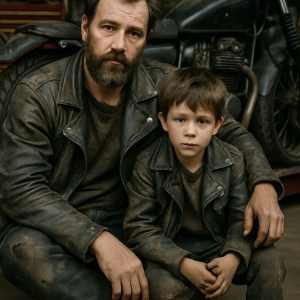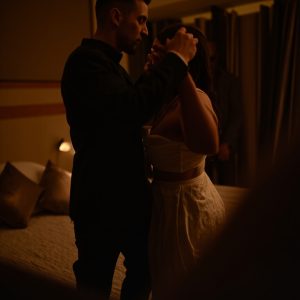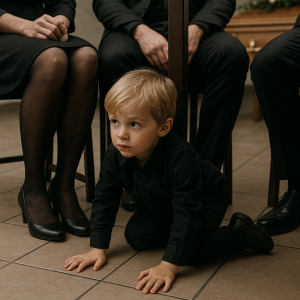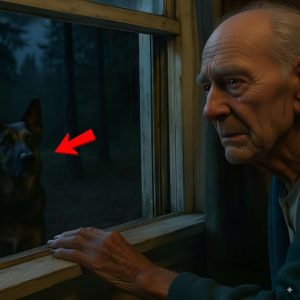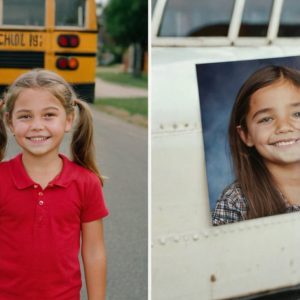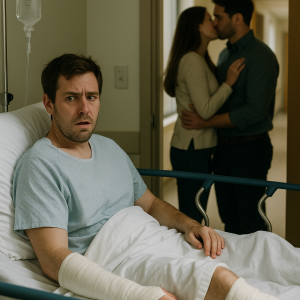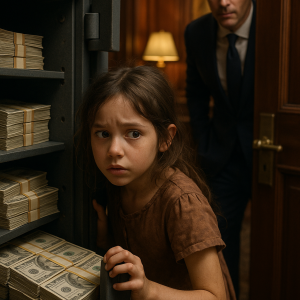My Husband Let Our Baby Roll Into the Street. But What the Security Camera Revealed Was Even Worse.
I’m twenty-five, a mother to a three-year-old daughter and a newborn son, and still recovering from a C-section less than six weeks old. My husband has always struggled with focus, but I never dreamed that flaw would nearly cost our children their lives.
I was folding laundry when I heard a sound that turned my blood to ice—my toddler’s scream. It wasn’t her usual cry; it was primal fear, ripped straight from her soul. “Daddy, help!” she shrieked.
I dropped the clothes and bolted outside, pain stabbing through my stitches. What I saw nearly ended me: my son’s stroller hurtling down our sloped driveway, straight toward the busy road where cars tore past nonstop.
A guttural scream ripped from me as I sprinted. Just as the stroller’s front wheels hit the asphalt, I lunged and yanked it back from the path of an oncoming car. My heart pounded so hard I thought my ribs might break. My little girl lay on the pavement, scraped and sobbing, after tripping while trying to chase her brother.
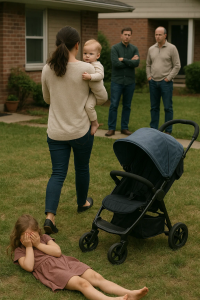
Clutching my son to my chest, I scanned for my husband. He wasn’t running to help. He wasn’t anywhere near the stroller. He was two houses away, standing in a neighbor’s driveway, laughing and chatting—completely oblivious.
Rage surged hot through my veins. With my daughter crying against my shoulder and my newborn still wailing in my arms, I stormed over to him. “What were you doing?!” I screamed. “He was in the street! He could have been killed!”
His face went slack, the color draining as his eyes flicked to where I pointed. Apologies and tears poured out of him, but they were meaningless. He hadn’t heard our daughter’s desperate cries. He hadn’t seen the stroller fly past him. That night, I packed up the kids and left for my parents’ house.
He texted endlessly afterward, calling it an “honest mistake,” begging for forgiveness. But the terror wouldn’t leave me. I had torn my incision open sprinting to save our son—a fact I didn’t even realize until my mother noticed I was bleeding in her car. I ended up in the ER after tending to my daughter’s scraped knees.
Some people asked why I wasn’t outside. I was doing laundry—his laundry, our children’s laundry—because that’s what parents do. He had taken them out for “bonding time.” He’s a thirty-year-old man, not a child I need to supervise. I cannot mother my husband while also caring for a newborn, a toddler, and my own recovery. ADHD or not, the court wouldn’t call that a mistake. They’d call it endangerment.
The next day, my neighbor reached out. “My wife and I are completely on your side. We have security cameras. Do you want the footage?”
I said yes. I needed the truth, unsoftened, unfiltered.
We watched it on my parents’ laptop. The grainy video was merciless. My husband walked up the neighbor’s driveway, leaving the stroller sitting on the slope, wheels unlocked, back turned to our baby. For five whole minutes, he never once looked back.
The footage showed the stroller starting to roll. My daughter chasing after it, screaming, before tripping hard. The neighbor rushing to help her. His wife’s car pulling up, and her sprinting for the stroller.
And my husband? He just stood there, hands on his head, frozen in place. He didn’t move when our daughter hit the pavement. He didn’t move when she screamed for help. He only broke down crying after I arrived.
That silence afterward was unbearable. No texts, no calls. Just the echo of my daughter’s scream captured on that recording—a sound no mother should ever hear.
For twenty-four hours, Mark said nothing. Not the silence of confusion, but of a man who knew the tape had exposed him, stripped bare his excuses. I spent that day numb, replaying the footage over and over. Five minutes. He left our baby vulnerable on a slope toward a speeding road for five minutes.
The next day, I did two things. First, I met with a family lawyer. I wasn’t ready to file for divorce yet, but I needed to know my rights. The lawyer was blunt: “This isn’t a mistake. This is reckless endangerment.” That phrase locked something in place inside me.
Second, I agreed to see Mark. Not at my parents’ house, where I felt safe, and not at ours, which still reeked of trauma. We met in a neutral space: a quiet coffee shop in the afternoon. My father came along, sitting a few booths away.
Mark looked hollow, like a shell of himself. His voice was raw when he spoke. “I saw the video,” he whispered. “I’ve watched it a hundred times. I don’t know why I froze. I heard her. I saw her fall. But I couldn’t move. I’m a monster.”
“You’re not a monster,” I said evenly. “You’re a liability.” He flinched. “Sorry isn’t enough. Sorry doesn’t stop a car. Sorry doesn’t stitch my body back together. Sorry doesn’t erase our daughter’s screams.”
He crumbled. “Tell me what to do. Anything. I’ll do it.”
So I told him. “You’re moving out. You’ll find an apartment. The kids and I need distance.” He nodded. “You’ll get a proper ADHD evaluation from a psychiatrist—no more self-diagnosing. You’ll follow through with whatever treatment plan they give you.” Another nod. “You’ll take a parenting and child-safety course. You’ll learn first aid, household dangers, everything. And visits with the kids will be supervised—at my parents’ house, never alone—until you prove, not with words but with actions, that you can be trusted.”
Finally, I said, “And only after you do all of that, we’ll try counseling. I won’t work on our marriage until you work on yourself.”
He didn’t fight. He just cried and agreed.
The following months were brutal. But he did everything I laid out. He moved into a small apartment. He got an official ADHD diagnosis and began treatment. He completed parenting classes. He came to supervised visits at my parents’ house, awkward but attentive, fully present with the kids.
I was healing too—physically, emotionally. Therapy helped me start unpacking my trauma and rage. I rented a small house in a calmer neighborhood with no sloped driveway, no speeding traffic. Slowly, the nightmare stopped replaying every night.
Four months later, we began couples counseling. The therapist didn’t let us sugarcoat. “Trust has been catastrophically broken,” she said. “Mark, your job is to prove you can be trusted. Jenna, your job is to see if he can.”
It wasn’t easy. We fought. We cried. But we kept showing up. At six months, Mark admitted something that changed everything: “I can’t promise my brain will change. But I can promise my behavior will. I’ve built systems. I check brakes three times before moving the stroller. I set alarms for safety checks. If I rely only on attention, I’ll fail again. I won’t fail again.”
That ruthless honesty finally cracked my wall of fear.
Nearly a year has passed. Mark still lives in his apartment but spends most evenings with us. He now has unsupervised visits. Our home is filled with checklists, locks, alarms, and safety nets. It isn’t effortless or romantic—but it is safe.
Last week, at the park, an old neighbor said, “I’m glad you two worked it out. It was just an honest mistake.”
I smiled politely. “It wasn’t a mistake. It was a wake-up call. And now, every single day, we wake up and choose to do better.”
We’ll never have the carefree innocence we had before. That scar, that memory, is forever part of us. But we’re building something sturdier: a love that isn’t blind, but deliberate. A love that is no longer a feeling, but a practice. And for us, that is enough.
